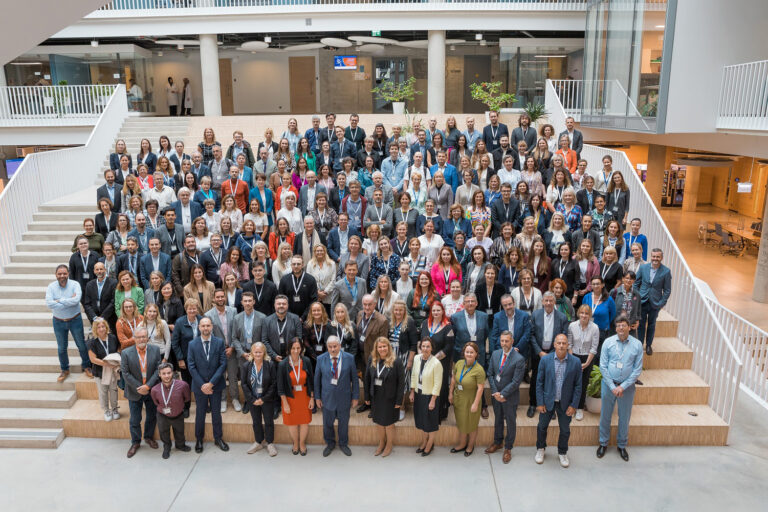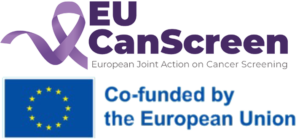March 2025
Project Updates
Closing the Cancer Screening Gap: Europe's Collaborative Solutions WP1

Disparities in access, quality, and implementation of screening programmes exist across different European countries. Where you live and your socioeconomic status can heavily influence your chances of getting screened for cancer. These disparities translate into real health consequences. Lower screening coverage mean more cancers diagnosed at a late stage, contributing to avoidable deaths. Frequently, broader healthcare inequalities have not been considered in screening programs, therefore, resulting in insufficient participation in screening for vulnerable populations.
Challenges are not something any country can do alone. A cornerstone of the solution is collaboration – the very principle on which EUCanScreen is built. EUCanScreen is organised into work streams targeting every angle: improving the sustainability of programmes so they last, enhancing data exchange so that outcomes are comparable, reducing inequalities in access and quality, closing the gap between the latest evidence and what’s done in practice, and building capacity by training the next generation of screening leaders. EUCanScreen unites experienced experts, researchers, and policymakers from all over Europe to encourage cooperation in cancer screening, aiming to harmonise and strengthen efforts across the EU. This kind of joint approach ensures that breakthroughs in one country can be rapidly disseminated to others.
Research and innovation are key to overcome both current and future challenges. Scientists, public health specialists, and clinicians are continuously refining screening – from developing better risk prediction models and less invasive tests, to using modelling to determine optimal screening intervals and age ranges. Innovation isn’t only high-tech; it can be as simple as improved communication. Successful ideas like mobile screening units or targeted text-message reminders can be shared through the network to boost participation rates elsewhere.
Risk-based strategies can improve the precision of screening – but implementing them will require careful navigation. Policymakers must consider how to update screening guidelines to include risk criteria, ensure such programmes remain equitable (so that those in underserved communities aren’t left behind by more complex schemes), and address any legal or ethical concerns around data use. In short, moving toward risk-based screening is a solution in progress: one that could revolutionise early detection, but which demands strong evidence and consensus-building before it becomes routine practice.
By identifying the gaps – whether an underserved population, an outdated guideline, or a lack of technology – and actively working together to fill them, Europe is crafting a more equitable and effective approach to cancer prevention. Policymakers are being equipped with actionable insights, healthcare providers are gaining new tools and training, and citizens are increasingly at the centre of awareness campaigns. Governmental Advisory Board that is being established within EUCanScreen is expected to contribute to bilateral exchange of knowledge between political decision-makers and experts as well as in between screening decision-makers in various EU Member States.
The vision that drives EUCanScreen and related initiatives is one where a person’s chances of surviving cancer no longer depend on where they live or who they are. Achieving that vision will require persistence and innovation, but the progress so far shows that Europe can make a real difference by pooling its knowledge and resources. In the coming years, as risk-based screening moves from pilots to practice and new screenings for lung, prostate, and other cancers come online, the hope is to see today’s disparities shrink – and to ensure that early detection truly becomes a universal norm. The stakes are measured in lives, and Europe is united in striving to save them.
Sustainability is an important aspect considered seriously in EUCanScreen. Screening implementation will require regular efforts going well beyond the lifetime of EUCanScreen. Initially, the situation analysis regarding the readiness for EU Member States will be conducted. Thereafter, framework for prioritisation and guidelines for cancer screening governance in Europe will be developed. Training and networking of new screening program leaders alien to involvement of political decision makers are expected to facilitate high quality and sustainable cancer screening schemes across Europe.
Marcis Leja
Scientific Coordinator Latvia
Subscribe to our newsletter to get news and updates.
Subscribe to our newsletter to get news and updates.

The general objective of EUCanScreen is to assure sustainable implementation of high-quality screening for breast, cervical and colorectal cancers, as well as implementation of the recently recommended screening programs – for lung, prostate and gastric cancers. EUCanScreen will facilitate the reduction of cancer burden and achieving equity across the EU.
This project has received funding from the European Union’s EU4HEALTH Programme under the Grant Agreement no 101162959











